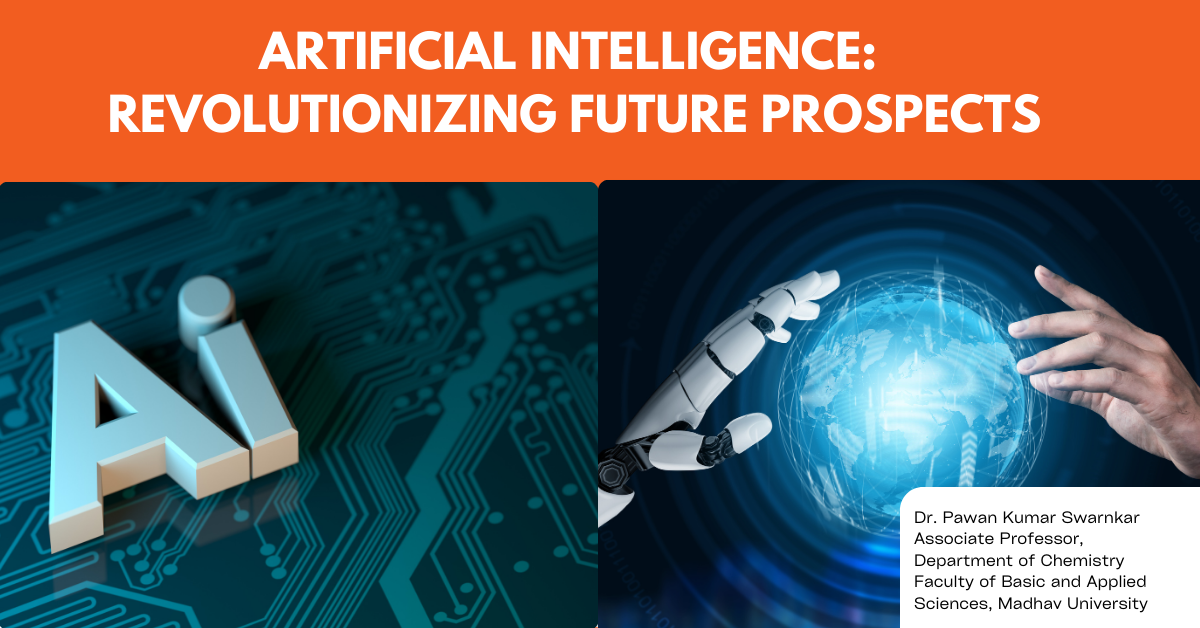Artificial intelligence (AI) has transformed businesses, economies, and civilizations, and is becoming more than just a science fiction notion. It is becoming an essential part of our everyday life. Artificial Intelligence (AI) is transforming several industries, including healthcare, banking, transportation, and entertainment, with its capacity to analyze enormous volumes of data, identify patterns, and make predictions. This essay examines the future consequences of artificial intelligence as well as its transformational potential.
Understanding Artificial Intelligence:
Fundamentally, artificial intelligence (AI) is the emulation of human intelligence processes by computers, especially computer systems. This intelligence includes verbal comprehension, learning, thinking, and problem-solving skills. Narrow AI and wide AI are the two basic categories into which AI systems may be divided. Weak AI, sometimes referred to as narrow AI, is created for specialized applications including recommendation engines, virtual assistants, and picture recognition. Conversely, powerful Artificial Intelligence (AI), or general AI, would be more like human intelligence in that it could comprehend, acquire, and use information in a variety of contexts.
Applications across Industries:
AI is delivering previously unheard-of efficiencies and capabilities to a wide range of industries. AI-driven medical technology is transforming medication research, customized treatment programs, and diagnostics. Compared to human radiologists, machine learning algorithms are more accurate and quicker in identifying illnesses like cancer from medical image analysis. Similar to this, AI-powered algorithms are utilized in finance for algorithmic trading, fraud detection, and individualized financial counselling.
In addition, AI is revolutionizing the transportation industry by lowering accident rates, improving routes, easing traffic congestion, and enabling driverless cars. Self-driving technology is being aggressively invested in by companies such as Tesla, Waymo, and Uber in an effort to improve safety and efficiency in transportation. AI is transforming the entertainment industry, transforming everything from personalized streaming platform suggestions to the production of literary, artistic, and musical works.
Challenges and Considerations:
AI has enormous promise, but it also brings up a number of serious ethical, societal, and financial issues. As AI becomes more widely used, human workers may lose their jobs as automation takes over in a variety of positions. Furthermore, biases in the data that AI algorithms are educated on may be maintained by the algorithms, producing unfair results in the criminal justice, lending, and employment sectors.
Furthermore, concerns regarding transparency and accountability are raised by the growing autonomy of AI systems. When an AI program malfunctions or does damage, who bears the blame? How do we make sure AI systems behave morally and in line with human principles?
The Future of AI:
AI has a bright future ahead of it, despite these obstacles. Industry-wide innovation will increase as long as machine learning, natural language processing, and robots continue to progress. As AI technologies advance, they will become more widely available and reasonably priced, democratizing intelligence access and spurring economic expansion.
But for AI to reach its full potential, governments, business executives, academics, and the general public must work together. To reduce hazards and make sure AI helps everyone in society, ethical standards, laws, and responsible AI activities are crucial.
To sum up, artificial intelligence is changing the world as we know it and presenting previously unheard-of opportunities and difficulties. Through responsible utilization of AI’s revolutionary capacity, we can open up new avenues for innovation and build a more affluent and just future for all.

